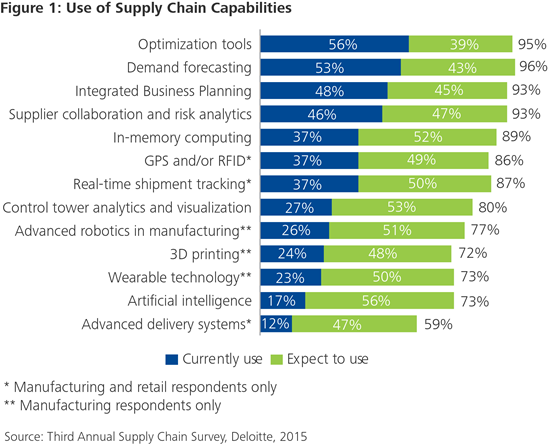
- 6 Life Hacks Learned in Prison That Will Maximize Your Productivity
I’ve learned to think diligently about my thoughts, and use them to communicate more effectively. Writing can help you organize your thoughts better and actually helps you to be a better verbal communicator. Start with communicating to your team via email, send emails to partners about discussions and/or send emails to your spouse when working through tough decisions.
http://www.entrepreneur.com/article/247779?ctp=BizDev&src=Syndication&msc=Feedly
- The Rise Of Trust (And Speed) In Supplier Enablement (Coupa’s Adam Alphin to look at the future of supplier enablement.)
Simply put, it’s injected trust into a conversation that previously felt like buyers were cornering or holding hostage their supply base. This trust has resulted in higher engagement, much higher participation in e-invoicing, and get this…suppliers becoming change agents within our customers organizations! We believe the conversation must change from “Here is a web portal that you’ll be charged to use, you’re now required to use it to be our supplier” to “Here are our business objectives we think are in both of our best interest, here are a series of tools we’re providing (for free!) so we can help each other achieve those objectives.”
- ‘The Irrigation Effect’: Why Your Employees Aren’t Getting the Message
Many leaders are surprised to learn that they are the barriers. We assume that we’ve communicated effectively when, in reality, the information we share is sparse, insufficient, infrequent, or simply inaccurate. Keep in mind that between the source of the water and the end of the row, the water may have to pass through multiple channels before it arrives. If managers don’t make a conscious effort to facilitate the flow of information, rather than obstruct it, vital communication is likely to dissipate before reaching those parts of the field where it is needed most.
http://www.entrepreneur.com/article/240849?ctp=BizDev&src=Syndication&msc=Feedly
- Supply Chain Talent Crisis Looms
Years of headcount reduction, training budget cuts, and the retirement of highly skilled individuals have all contributed to the shortage of supply chain talent. At the same time, a combination of accelerating technology development and widespread experimentation with new operating models are expanding the scope of supply chain operations, creating a demand for new types of supply chain employees—a trend that is only expected to accelerate in the future. “Margins are so thin in many industries that any technology or operational change that can provide a competitive advantage—whether its 3D printing or advanced analytics—is critical. And those capabilities are inherently dependent on talent,” explains Kelly Marchese, a principal and supply chain leader with Deloitte Consulting LLP.
http://deloitte.wsj.com/cio/2015/06/25/supply-chain-talent-crisis-looms/

- Are the days of global supply chains numbered?
In Global Supply Chains: New Directions, the Standard Chartered Bank acknowledges that several macroeconomic trends, such as increasing urbanization, more sophisticated communications technology, and lower oil prices, continue to support the growth of global supply chains. Yet at the same time, other trends are creating a sort of headwind that is slowing the pace of growth. For example, automation and robotics are improving, making it easier for companies to stop chasing low-cost labor abroad and bring their manufacturing operations back to local markets. Increasing concerns about sustainability and the high carbon footprint of global supply chains may also be dampening global supply chain growth. Some companies are interested in shortening their supply chains to avoid the risk of disruptions due to a natural disaster or civil unrest half a world away.
http://www.supplychainquarterly.com/news/20150624-are-the-days-of-global-supply-chains-numbered/

